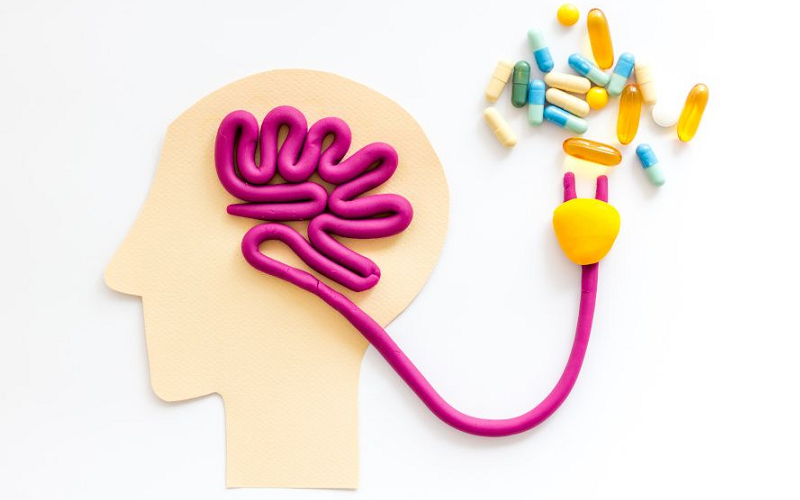
As the global population continues to age, maintaining cognitive health has become a crucial aspect of overall well-being. Nutraceuticals, a term that combines “nutrition” and “pharmaceuticals,” refer to naturally occurring compounds with potential health benefits, particularly in promoting brain health. Here we explore the role nutraceuticals play in supporting cognitive function in older adults.
Contents
Introduction to Nutraceuticals and Cognitive Function
As the world’s population ages, cognitive health has become an increasingly important concern for older adults and their caregivers. Maintaining mental sharpness, memory, and overall cognitive function is vital for living a fulfilling and independent life. One promising avenue for supporting cognitive health is through the use of nutraceuticals—naturally occurring compounds that offer potential health benefits.
Definition of Nutraceuticals
Nutraceuticals are substances derived from food sources that have health benefits beyond basic nutritional value [1]. They can be consumed as part of a regular diet or taken as supplements in the form of pills, powders, or liquids. The term “nutraceutical” combines “nutrition” and “pharmaceutical” to describe these compounds which encompass a wide range of compounds, including vitamins, minerals, amino acids, enzymes, and other bioactive ingredients. Their potential benefits span from promoting general health and well-being to preventing or treating specific diseases and conditions.
Overview of Cognitive Function in Older Adults
Cognitive function encompasses various mental processes, such as attention, memory, problem-solving, decision-making, and language skills [2]. As individuals age, they may experience a natural decline in cognitive abilities. This decline can manifest as mild forgetfulness or, in more severe cases, progress to conditions like mild cognitive impairment (MCI) or Alzheimer’s disease.
Numerous factors contribute to age-related cognitive decline, including genetic predisposition, lifestyle habits, and underlying health conditions. Research has shown that a combination of a healthy diet, regular exercise, stress management, and mental stimulation can help maintain or even improve cognitive function in older adults.
Importance of Cognitive Health for Aging Population
Preserving cognitive health is essential for older adults to maintain their independence and quality of life. Cognitive decline can impact day-to-day activities, making it difficult to manage finances, medication, personal care, and social relationships. Furthermore, the progression of cognitive decline can lead to increased healthcare costs and caregiver burden.
By understanding and implementing strategies to support cognitive function, older adults can potentially delay or mitigate age-related cognitive decline. One such strategy involves incorporating nutraceuticals, which can play a crucial role in promoting brain health and supporting cognitive function. In the following sections, we will delve deeper into the science behind nutraceuticals and their potential benefits for cognitive health in older adults.

The Science Behind Nutraceuticals and Cognitive Health
The use of nutraceuticals to support cognitive health is grounded in scientific research, as various compounds have demonstrated positive effects on brain function. In this section, we will explore the role of nutraceuticals in brain health, their mechanisms of action, and the supporting research and clinical trials that have been conducted in this field.
Nutraceuticals’ Role in Brain Health
Nutraceuticals can influence brain health by targeting specific aspects of cognitive function, such as memory, attention, and processing speed [3]. They can also improve overall brain health by reducing inflammation, promoting neurogenesis (the growth of new neurons), and protecting existing neurons from damage. These effects, in turn, can help support cognitive function in older adults and potentially delay or prevent age-related cognitive decline.
Mechanisms of Action
Antioxidants
Oxidative stress is a significant contributor to age-related cognitive decline, as it can cause damage to brain cells and impair their function. Many nutraceuticals possess antioxidant properties, meaning they can neutralize harmful free radicals and protect brain cells from oxidative damage. This protection can help maintain cognitive function and prevent neurodegenerative diseases.
Anti-inflammatory Properties
Chronic inflammation is another factor that can negatively impact cognitive function. Nutraceuticals with anti-inflammatory properties can help reduce inflammation in the brain, which may contribute to improved cognitive function and reduced risk of neurodegenerative diseases.
Neuroprotection and Neurogenesis
Some nutraceuticals can promote neuroprotection, which involves safeguarding existing neurons from damage, and neurogenesis, which is the growth of new neurons. By supporting these processes, nutraceuticals can potentially improve cognitive function and help the brain adapt to age-related changes.
Supporting Research and Clinical Trials
Numerous studies and clinical trials have been conducted to investigate the effects of nutraceuticals on cognitive function in older adults. Many of these studies have shown positive results, with participants experiencing improvements in memory, attention, and processing speed [4]. However, it is essential to note that not all studies have yielded consistent results, and more research is needed to fully understand the potential benefits of nutraceuticals for cognitive health.
While some nutraceuticals have demonstrated promising results in laboratory settings, their efficacy in real-world situations may vary. Factors such as dosage, bioavailability (the extent to which a substance is absorbed and used by the body), and individual differences can all influence the effectiveness of nutraceuticals in supporting cognitive function. Consequently, it is crucial to approach the use of nutraceuticals with a balanced perspective and consider them as one part of a comprehensive strategy to maintain cognitive health.

Key Nutraceuticals for Cognitive Support
A variety of nutraceuticals have shown promise in supporting cognitive function in older adults.
Omega-3 Fatty Acids
Omega-3 fatty acids are essential fats that the body cannot produce on its own, so they must be obtained through diet or supplementation. The primary sources of omega-3s include fatty fish such as salmon, mackerel, and sardines, as well as plant-based sources like flaxseeds, chia seeds, and walnuts.
The American Heart Association recommends consuming at least two servings of fatty fish per week to obtain the necessary amounts of omega-3 fatty acids. For those who prefer supplementation, fish oil capsules or algae-based supplements are available.
Omega-3 fatty acids, particularly eicosapentaenoic acid (EPA) and docosahexaenoic acid (DHA), are essential for brain health [5]. DHA is a major component of brain cell membranes and plays a critical role in neuron function, while EPA has anti-inflammatory properties that may protect the brain from damage. Research has shown that omega-3 fatty acids can help improve memory and cognitive function in older adults, as well as potentially reduce the risk of Alzheimer’s disease and other neurodegenerative disorders.
Ginkgo Biloba
Ginkgo biloba is a widely-used herbal supplement derived from the leaves of the Ginkgo tree. The standard recommended dose of Ginkgo biloba extract varies between 120-240 mg daily, usually divided into two or three doses. It is essential to consult with a healthcare professional before starting Ginkgo supplementation, as it may interact with certain medications.
Ginkgo biloba has been found to improve blood flow to the brain, which can enhance cognitive function, particularly in older adults with age-related cognitive decline [6]. It also possesses antioxidant and anti-inflammatory properties that may protect brain cells from damage. Studies have shown that Ginkgo biloba supplementation can help improve memory, attention, and processing speed in older adults.
Curcumin
Curcumin is the primary active compound found in turmeric, a spice commonly used in Indian cuisine and traditional medicine. To obtain the cognitive benefits of curcumin, it is recommended to consume it in supplement form, as the bioavailability of curcumin from dietary sources is quite low. The recommended daily dose of curcumin ranges from 500-2,000 mg, depending on the specific formulation. It is often combined with other ingredients, such as black pepper extract, to enhance absorption.
Curcumin has been shown to possess antioxidant, anti-inflammatory, and neuroprotective properties that can support cognitive function. It can help reduce oxidative stress and inflammation in the brain, as well as promote neurogenesis. Research suggests that curcumin supplementation can improve memory and mood in older adults, as well as potentially reduce the risk of Alzheimer’s disease.
Phosphatidylserine
Phosphatidylserine can be found in small amounts in various foods, such as organ meats, soybeans, white beans, and egg yolks. However, the concentration of phosphatidylserine in these sources is typically not enough to achieve the desired cognitive benefits. Therefore, supplementation is often recommended [7]. The standard daily dose of phosphatidylserine ranges from 100-300 mg, typically taken in divided doses with meals.
Phosphatidylserine has been shown to support cognitive function by maintaining the integrity of cell membranes, promoting neuron communication, and reducing inflammation. Studies have found that phosphatidylserine supplementation can help improve memory, attention, and overall cognitive performance in older adults. It has also been suggested to help alleviate symptoms of age-related cognitive decline and may play a role in reducing the risk of Alzheimer’s disease.
Huperzine A
Huperzine A is a natural compound extracted from the Chinese club moss plant (Huperzia serrata). It is typically consumed in supplement form, as the compound is not readily available through dietary sources. The recommended daily dose of Huperzine A varies depending on the specific formulation, but generally ranges from 50-200 mcg, taken once or twice daily. As with any supplement, it is crucial to consult with a healthcare professional before starting Huperzine A supplementation, as it may interact with certain medications.
Huperzine A is known for its ability to inhibit an enzyme called acetylcholinesterase, which breaks down the neurotransmitter acetylcholine. By preserving acetylcholine levels, Huperzine A can help support cognitive function, particularly in memory and learning processes. Research has shown that Huperzine A supplementation can improve memory and cognitive performance in older adults, as well as potentially delay the progression of Alzheimer’s disease and other neurodegenerative disorders.

Additional Nutraceuticals Worth Exploring for Cognitive Support
Apart from the key nutraceuticals discussed earlier, several other compounds have demonstrated potential benefits for cognitive health in older adults. While the evidence for these nutraceuticals may not be as robust, they are still worth exploring as part of a comprehensive approach to maintaining cognitive function.
Vitamin E
Vitamin E is a fat-soluble antioxidant that helps protect brain cells from oxidative damage. Dietary sources of vitamin E include vegetable oils, nuts, seeds, and green leafy vegetables. Some studies have suggested that vitamin E supplementation can help slow the progression of Alzheimer’s disease and improve cognitive function in older adults. However, more research is needed to confirm these findings and determine the optimal dosage for cognitive benefits.
B Vitamins (B6, B9, B12)
B vitamins play a crucial role in brain health, as they are involved in the production of neurotransmitters and maintenance of nerve cells. In particular, vitamins B6, B9 (folate), and B12 have been linked to cognitive function. These vitamins can be obtained through a balanced diet that includes whole grains, legumes, fruits, vegetables, and animal products. Some studies have shown that supplementation with B vitamins can help improve cognitive function in older adults, particularly in those with elevated homocysteine levels, which is a risk factor for cognitive decline.
Magnesium L-Threonate
Magnesium L-Threonate is a unique form of magnesium that has been shown to effectively cross the blood-brain barrier, making it particularly beneficial for brain health. Some research suggests that Magnesium L-Threonate supplementation can improve cognitive function, memory, and learning abilities in older adults. Foods rich in magnesium include whole grains, nuts, seeds, and green leafy vegetables; however, the specific L-Threonate form is primarily available through supplementation.
Citicoline
Citicoline is a natural compound that serves as a precursor to phosphatidylcholine, an essential component of brain cell membranes. Supplementation with citicoline has been shown to increase the production of neurotransmitters, support brain cell function, and promote neuroprotection. Some studies have found that citicoline can help improve memory, attention, and overall cognitive function in older adults. Citicoline can be synthesized by the body, but supplementation may be beneficial for those seeking to support cognitive health.
Bacopa Monnieri
Bacopa Monnieri is an adaptogenic herb that has been used in traditional Ayurvedic medicine to enhance cognitive function and reduce stress. It is believed to work by modulating neurotransmitter activity, promoting neuroprotection, and reducing inflammation in the brain. Some research has shown that Bacopa Monnieri supplementation can improve memory, attention, and cognitive performance in older adults. However, more studies are needed to establish the optimal dosage and duration of treatment for cognitive benefits.
Incorporating Nutraceuticals into a Healthy Lifestyle
While nutraceuticals can play a valuable role in supporting cognitive function in older adults, it is essential to remember that they should be integrated into a healthy lifestyle to achieve optimal benefits.
A Balanced Diet
A nutrient-rich diet is the foundation of a healthy lifestyle and can provide many of the essential compounds needed for cognitive health. Aim to consume a variety of whole foods, including fruits, vegetables, whole grains, lean proteins, and healthy fats. Incorporating foods rich in omega-3 fatty acids, antioxidants, and B vitamins can help support brain health naturally. Additionally, consider adding nutraceutical supplements to your diet as needed, based on individual needs and healthcare professional recommendations.
Regular Exercise
Physical activity is vital for overall health and has been shown to support cognitive function in older adults. Engaging in regular exercise can improve blood flow to the brain, reduce inflammation, and promote the growth of new neurons. Aim for at least 150 minutes of moderate-intensity aerobic activity or 75 minutes of vigorous-intensity activity each week, along with muscle-strengthening activities on two or more days per week.
Mental Stimulation
Keeping the mind active and engaged is crucial for maintaining cognitive function as we age. Engage in mentally stimulating activities such as puzzles, reading, learning new skills, or participating in social activities. These activities can help strengthen neural connections and promote cognitive resilience, which may help delay age-related cognitive decline.
Adequate Sleep
Sleep is essential for overall health and plays a critical role in cognitive function. During sleep, the brain processes and consolidates memories, removes waste products, and restores its energy reserves. Aim for seven to nine hours of quality sleep each night to support optimal brain health. Incorporate good sleep hygiene practices, such as maintaining a consistent sleep schedule, creating a relaxing bedtime routine, and ensuring a comfortable sleep environment.
Consult with Healthcare Professionals
Before adding any nutraceutical supplements to your regimen, it is essential to consult with a healthcare professional. They can help determine the most appropriate nutraceuticals for your individual needs, taking into account your medical history, current medications, and potential interactions or contraindications. By working together with healthcare professionals, you can create a personalized plan to support cognitive health and overall well-being in older age.
References
[1] What are Nutraceuticals?
[2] Cognitive Function
[3] Can Nutrients and Dietary Supplements Potentially Improve Cognitive Performance
[4] Effects of Nutrition on Cognitive Function in Adults with or without Cognitive Impairment
[5] The Importance of Marine Omega-3s for Brain Development and the Prevention and Treatment of Behavior, Mood, and Other Brain Disorders
[6] Ginkgo biloba Information | Mount Sinai – New York
[7] Phosphatidylserine from Vegetable Sources Doesn’t Work

